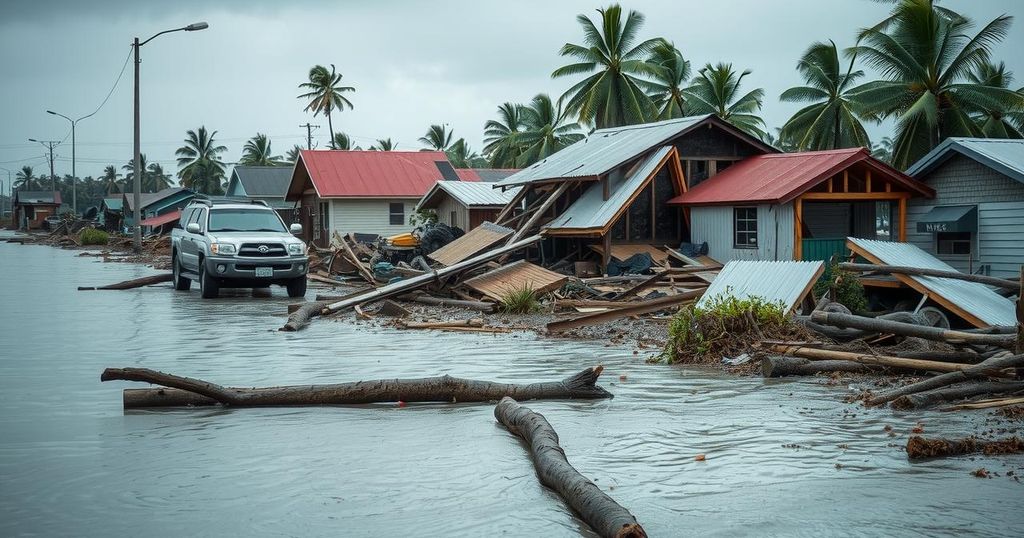Cyclone Chido: Catastrophic Impact on Mayotte and Mozambique
Cyclone Chido struck Mayotte on December 15, causing widespread devastation and disrupting vital infrastructure. Following its impact, the cyclone later hit Mozambique, prompting fears of escalating casualties. Climate change experts warn about the increasing intensity of such storms attributed to rising ocean temperatures, with 1.7 million people currently at risk in affected areas. International aid efforts have begun, although challenges to full assessment persist due to undocumented residents.
Cyclone Chido wreaked havoc in Mayotte on December 15, resulting in extensive damage to infrastructure and communities. The storm devastated shantytowns, severely impacted the airport, and interrupted essential services such as power, water, and communication. Experts attribute the cyclone’s intensity to climate change, particularly the elevated temperatures of the Indian Ocean. Rescue efforts are further complicated by the need to assess the situation amidst significant infrastructural damage. Following its impact in Mayotte, Cyclone Chido made landfall in Mozambique, leaving additional destruction in its wake. The situation has prompted concern from the United Nations Office for the Coordination of Humanitarian Affairs (UN OCHA), with reports indicating that approximately 1.7 million individuals are currently at risk due to the cyclone’s aftermath. European Commission President Ursula von der Leyen and the World Health Organization have offered aid, but challenges remain, particularly due to the presence of approximately 100,000 undocumented residents, which hampers a full damage assessment.
Cyclone Chido emerged as a significant weather event linked to climate change, signifying a growing trend of intensified storms in the Indian Ocean region. The impacts of such cyclones are exacerbated by rising ocean temperatures, which contribute to the severity of these natural disasters. As communities in Mayotte and Mozambique grapple with the aftermath, the long-term implications on infrastructure, public health, and humanitarian needs remain a pressing concern for regional and global authorities.
In summary, Cyclone Chido has not only devastated Mayotte but also affected Mozambique, with thousands feared dead and millions at risk. The interplay between climate change and natural disasters underscores the urgent need for comprehensive disaster preparedness and response strategies. The international community, led by organizations such as the United Nations and the European Union, is urged to provide support as affected regions begin the long process of recovery.
Original Source: m.economictimes.com




Post Comment